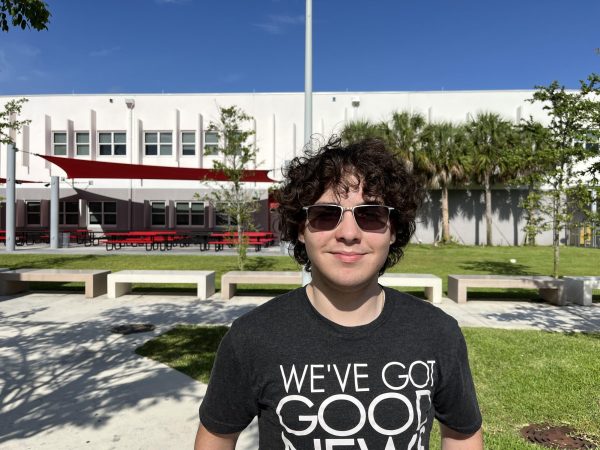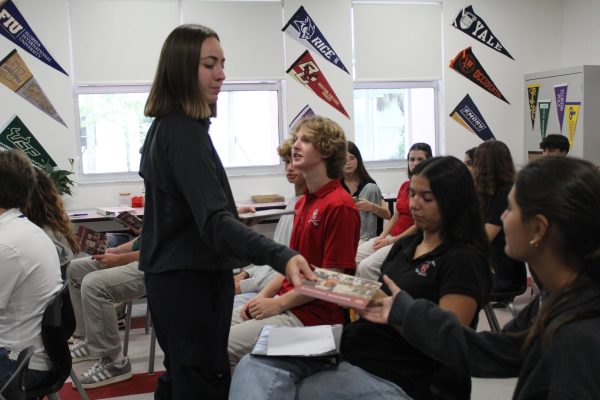More Tourism or More Traffic: Miami Selected as Host City for World Cup 2026
This summer, Miami was announced as one of the 16 cities that will host the FIFA World Cup in 2026.
With the 2022 World Cup just around the corner, the International Federation of Football Association has chosen the cities that will take part in the next World Cup four years from now. Among other notable cities like Los Angeles, Toronto and New York City, Miami has been chosen as one of the 16 hosts for the 2026 World Cup. While this news was received positively by football fans worldwide, it has also sparked debates among Miami residents worried about the potential implications of increased tourism. Despite the possibility of such problems, hosting the World Cup will likely bring benefits to Miami that ultimately outweigh such concerns.
Hosting the 2026 World Cup will undoubtedly boost the economies of the 16 participating cities, including Miami. In fact, a 2018 study done by the Boston Consulting Group, a global management firm, estimated that hosts of the 2026 World Cup would generate around $5 billion in overall revenue with each city potentially generating $90-$480 million when accounting for personal costs.
Not only would this revenue cover all costs for security and additional preparation, but it would also serve to help Miami’s economy in the future. Being a host for the tournament usually leads to an increase in long-term trade, as past years have shown. In addition, Miami’s role as a host will likely bring more attention to smaller businesses in the city as a large number of tourists will be in the area.
One of the most hotly debated issues when it comes to hosting the FIFA World Cup is proper security. With over 3 billion football fans worldwide, it is to be expected that some fans will be overexcited and cause problems or chaos when watching their favorite national team. While these are potential concerns that would affect Miami residents and tourists alike, it is even more possible that measurements will be put in place to minimize the issue.
“Honestly I’m not too sure how I feel about hosting the WC. Obviously, it’s really cool to be so close to an event that I’ve been watching for pretty much my whole life, but I think there also could be problems with all the people coming here. Like watching the World Cup is definitely a nice experience, but the traffic definitely won’t be,” junior Osmany Garcia said.
For example, this year’s World Cup host, Qatar, has recently disclosed its extensive response procedures in the event of increased threats and possible violence during the games in December. Not only did it provide its own security for the stadiums, but it has also cooperated with an international police force, partly supplied by the North Atlantic Treaty Organization, to ensure that fans in Miami can focus on celebrating a goal rather than worry about their safety.
In addition to security, FIFA also encourages and provides help restricting traffic in ways that will minimize traffic jams and other incidents in their host cities. Since procedures like this have already been put in place, it is likely that security and traffic will not be a deterrent for Miami’s hosting of the World Cup.
It is no secret that Miami is a diverse city full of culture and sports. With football fans coming here from all around the world because of the World Cup, Miami will benefit from the increased tourism and cultures found in the tournament. Additionally, hosting the tournament will also bring more attention to the passionate football community in Miami and America in general. This spotlight on an otherwise less played sport in the country could bring more opportunities for leagues like Major League Soccer and its players.
“I would definitely say that having the World Cup here in Miami is a good idea. Not only do we have such a large football community already because of the Hispanics who live here, but it would only keep on growing with the World Cup. Also, having tourists coming around from all over the world could influence us here by introducing new traditions and culture into Miami’s ‘melting pot’,” junior Diego Lopez said.
Miami is one of the largest cities for tourism in the whole world. Being used to so much travel and incoming tourists, there is no doubt that the people and the city will adapt to any issues caused by the 2026 World Cup. Instead of focusing so much on what could go wrong, it is time we appreciate the opportunity to host the tournament and make it a memorable experience.
Your donation will support the student journalists of Coral Gables Senior High School. Your contribution will help us cover our annual website hosting costs.

Anthony Fajardo, a senior in the International Baccalaureate magnet program at Coral Gables Senior High School, is gearing up for his last year as a Sports...









